The Gift of South Dakota
Subscriptions to South Dakota Magazine make great gifts!
Subscribe today — 1 year (6 issues) is just $29!
Summers Like Watermelons
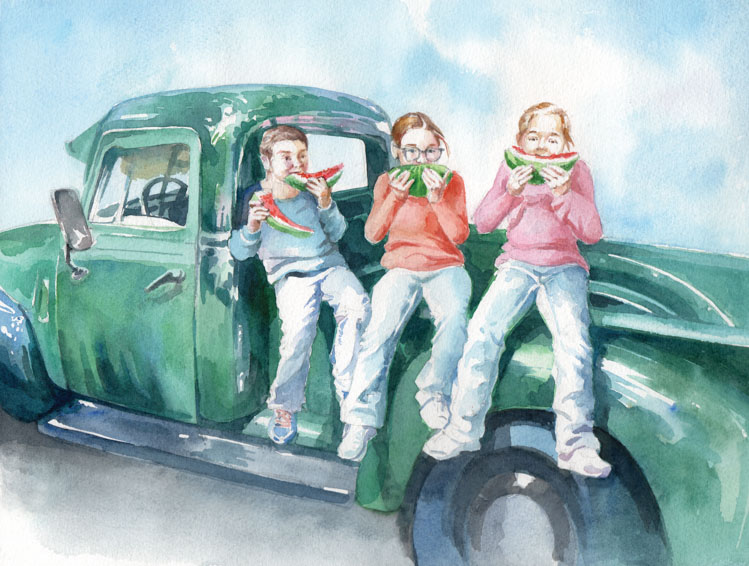 |
| Illustration by Darya Tsaptsyna. |
The summers were like watermelons: we split them open and dug our spoons into the red flesh, claiming no melon had ever tasted so good, the juice running down our chins. The summers were huge and round and bright green, too big to carry, containing everything.
We threw open the screen door and took off running. We ran everywhere. To the barn where wild momma cats curled around tight balls of kittens in the square straw bales. To the corral where the bum calves waited for their bottles. To the shelter belt of pine trees that stood like ladders to the sky. We climbed to the top, sap on our legs and hands, and surveyed the prairie like eagles.
In the summer we were best friends. We saw the town kids occasionally, the other farm kids even less. But we needed and missed no one. We had each other, and the land, and Mom and Dad, and animals: two dozen cats, a border collie, horses, cows, raccoons, rabbits, deer, antelope, badgers, songbirds, and coyotes howling at sunset.
We got up early and whisked powdered milk with hot water in a 1-gallon Schwan’s ice cream bucket and funneled the milk into white plastic bottles and stoppered them with red rubber nipples. We carried in hay and pellets and checked the water tank. We named the calves after Disney characters and rubbed their backs while they sucked milk.
In the evening we pitched hay and poured buckets of corn for the butcher steers in the corral. We scratched their necks and sang them songs, named our favorites and took their pictures with the FunSaver cameras Mom bought us. Someday the steers would be eaten, likely by us, but that felt far away. We didn’t feel anything about our role in fattening them for slaughter. The corral was across the gravel road from our house, at the bottom of a deep draw with a small marshy creek. The smell of sweet clover hay mixed with wet creek mud and the earthy scent of manure: that’s the aroma of summer evenings as a child.
We were 8, 5 and 3 years old. Then 10, 7, 5 and 1 (we got a baby sister that year). Then 12, 9, 7 and 3.
On Sunday afternoons we crammed into a ’70s-era Ford pickup with Mom and Dad and set off to the pasture to “check cows.” We always hoped the cows were on the other side of a steep draw so we could gasp and cringe as Dad went off-roading. The cows gathered around the pickup as Dad filled the salt and mineral tubs, and by hand we fed the friendly ones cake, tasty pellets as round as cigars. When Dad parked the pickup truck by the stock dam, we leaped out and followed cow trails deep into the cottonwoods, tasted ruby red buffalo berries and wild purple plums, smelled sunflowers and sweet clover.
Most days we looked as wild as we felt. We wore slip-on shoes that were green inside from the grasshoppers we squashed under our heels while running in the grass. In the morning we put on whatever looked comfortable — our dad’s black T-shirts that fit like dresses, jeans cut into shorts, those free but too big XXL shirts from the annual Farm Safety Day Camp. We destroyed our clothes with dirt, cow manure, grass stains, popsicle drips and cat claws.
Some years we grew a big, shared garden of vegetables and flowers with our mom. Other years we divided it into personalized plots that reflected our individual tastes. Once we planted a corn maze. In the stalks we played hide and seek with kittens and munched on raw peas, pod and all, and dug our fingers and toes into the dirt. We were big on dirt.
On branding day, we watched our dad and uncles sort the calves from the cows and push them down the chute and onto the branding table. With a mix of curiosity and remorse we pressed our foreheads to the fence and watched Dad brand a calf, give it shots, notch its ears, and, if it was a male, castrate it. Blood and iodine, testicles and bits of ears, the smell of burning hair and skin. We got older and left the fence one by one to join the men. We filled the vaccine gun and angled the needle, pushed the calves down the alleyway while they kicked our shins and returned them to their mothers when the day ended.
The erratic prairie weather was our guiding force. On hot days we jumped into the little above-ground pool Mom set up for us. On cold days we fled to the barn. We wore knee-high black rubber boots when the corrals were muddy. We stayed up late watching lightning storms and huddled in the basement when the tornado warnings came. When hail destroyed the wheat, we stayed silent and serious like our parents. When it rained, we rejoiced with them.
We ate strange things: the chips that flaked off the tubs of Crystalyx, a sweet, crystallized blend of molasses, fat and minerals meant for cows; wheat kernels straight from the beard; starchy field corn before it ripened; the caramelized cracked corn and oat mixture we fed the bum calves. We opened our mouths wide and drank from the water hydrant.
But watermelon — that was the taste of summer. It seemed there was always one in the fridge. All summer we anticipated that perfect melon: sweet but not sugared, juicy but crisp, the kind that let out an audible “crack” when split open. And when we found it, we gorged.
Then we were 13, 10, 8 and 4, and everything changed.
That summer I went to the fields with Dad, and the season went from being a time of play to a time of work. I raked windrows of hay with a Farmall tractor and a twin rake, bouncing down the field, Dad following with the baler. Then I cut hay with a Hesston swather with no cab for a summer before graduating to a bigger machine that would be “mine” for the next four years. Dad and I would leave at 5 a.m. and take lunch to the field. I came home at night dusty and tired. Because I loved the farm, I loved the work.
Then came boyfriends and beer cans and rodeos. Sundays at the lake with friends and late-night cruises in my pickup truck. Strongly worded declarations about moving to the city. The many forms of teenage trouble I got into during the summer. I spent those long days and nights with friends instead, and my siblings did the same. And then I was gone to college across the state, then to a job across the country.
No family stays young forever. But there are kind ways to grow up, and not so kind ways. As a teenager I was independent and quick to anger. I thought I deserved my space. Now I see that I pushed my family away to create that space, to create myself.
We are 30, 27, 25, and 21. We live in four different states. Though one sibling occasionally travels to visit another, Christmas is the only time all four of us are together. We text and call, but our lives are more complicated than we thought possible. The time accumulates like snow between phone calls and suddenly it’s been two, three, four months since we talked.
Sometimes I find one — a perfect melon. I eat a forkful and I’m sitting at the kitchen table on the farm. We’re 12, 9, 7 and 3 again. It’s Sunday afternoon in late July and we just ate Mom’s fried chicken and gravy and Dad is sprinkling salt on a watermelon slice, his funny habit. Our hair is bleached white from the sun and we’re making plans to check cows. The wheat is ripening in the fields. We dig into the watermelon and declare it to be perfect, the best one of the summer. We’ll never find one this good again, we say.
Editor’s Note: Stephanie Anderson grew up on a ranch near Bison in Perkins County. She lives and writes in Boca Raton, Florida. This story is revised from the July/August 2020 issue of South Dakota Magazine. To order a copy or to subscribe, call (800) 456-5117.


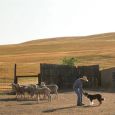
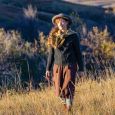
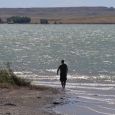
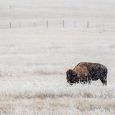
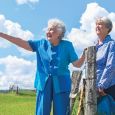
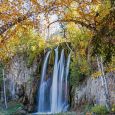
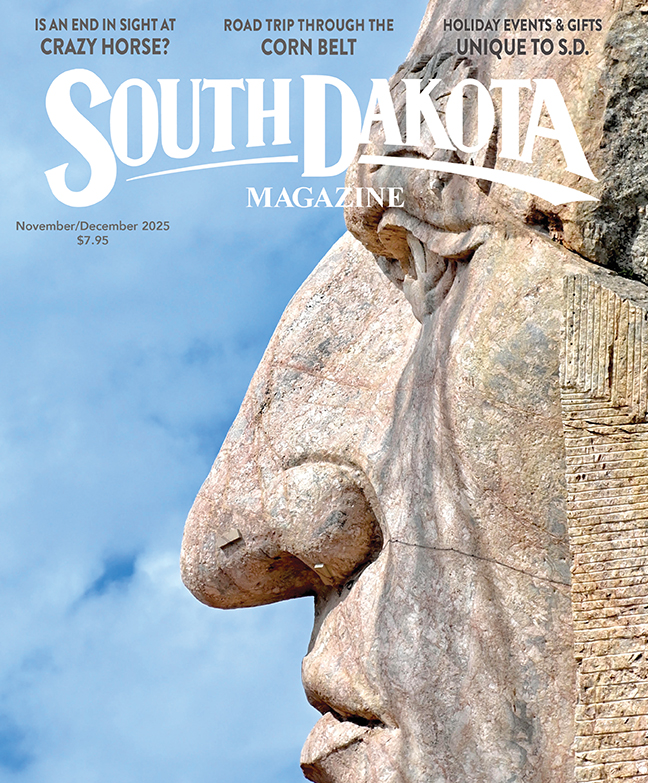
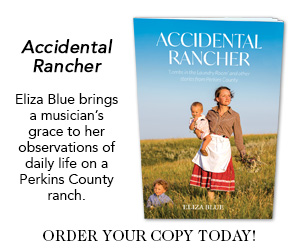
Comments